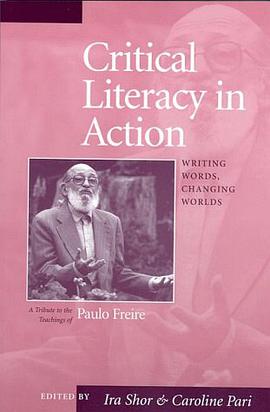

具体描述
Critical Issues in Social Theory is an analytical survey of persistent controversies that have shaped the field of sociology. It defines, clarifies, and proposes solutions to these "critical issues" through commentary on the writings of such influential social theorists as Hobbes, Marx, Durkeim, Weber, Mead, Merton, Parsons, and Schutz. Instead of being just another history, or another classification of theories, Rhoads's four-part model allows him to focus attention on issues that remain at the core of sociological theory today. First, Rhoads analyzes the controversy over positivism as the proper methodological model for the study of human society. Is there one science, of which sociology is a branch, or do the peculiarities of sociology's subject matter require a modification of the scientific method borrowed from the natural sciences? Rhoads next considers the relationship of individuals to society and its structures. Does society have a mode of existence distinct from its members, or is it merely an abstraction derived from the characteristics of individuals? Third, a discussion of social order raises the question of whether social order is the consequence of rules and their underlying moral values, or the product of continuous construction based on self-interest. Finally, the relative importance of consensus and conflict in social relationships is addressed. Is society better understood as a community united by beliefs, values, and rules, or is the social dynamic of continual conflict over beliefs, values, and rules more fundamental? In coming to grips with these issues, the author in some instances takes sides and in others arrives at a synthesis of diverse perspectives. In thefinal chapter he points to the limitations on the possibility of rational action that come to light in the clashes over these basic issues.
作者简介
目录信息
读后感
评分
评分
评分
评分
用户评价
坦率地说,这本书的某些章节读起来令人感到一种令人不安的清醒。它不是在安慰读者,而是在揭示那些被主流叙事精心掩盖的结构性不公与潜在的社会断裂。作者对“全球资本的流动性”与“地方文化韧性”之间张力的分析,尤其深刻地揭示了底层民众在宏大经济变动面前的无力感。他没有陷入简单的二元对立叙事,而是细致地展现了权力关系是如何通过信息不对称、资源分配不均等微观机制不断自我再生产的。阅读体验上,这本书要求读者具备高度的批判性自觉,因为它不断地在挑战我们对“进步”“发展”“理性”等核心概念的理解。它的论证过程充满了审慎的怀疑和对自身局限性的反思,这使得全书的论调显得无比真诚和可靠。它不是一本鼓吹革命或提供速效解药的读物,而是一份冷静、透彻的诊断书,它教会我们如何更好地“看清”而不是“相信”,如何通过精准的理论工具去识别那些潜伏在日常表象之下的深层矛盾。
评分我必须承认,初次接触这本书时,我对其深奥的专业术语和密集的理论推导感到了一丝畏惧。它无疑是一部面向专业领域读者的重磅级学术文献,行文风格严谨到近乎冷酷,毫不留情地揭示了诸多社会理论流派之间的根本性矛盾与张力。书中对后结构主义的批判性继承,以及对马克思主义理论在当代语境下进行“再激活”的尝试,展现了作者深厚的学术功底和卓越的整合能力。与其说是在阅读一个简单的论述,不如说是在参与一场高强度的智力辩论。作者对概念的界定细致入微,例如他对“能指”和“所指”在数字媒体环境中的变异,提供了极具启发性的分析框架。对于那些习惯于通俗读物的读者来说,这可能是一次不小的挑战,需要极大的耐心去梳理其逻辑链条。然而,一旦跨越了初期的阅读障碍,你便会发现其内部蕴含着巨大的理论能量,它不是用来消遣的,而是用来构建更坚固的思维大厦的基石。这无疑是该领域内,一部需要被反复研读、细细拆解的里程碑式著作,其价值在于其思想的密度和深度。
评分这部作品的叙事节奏和逻辑推进方式,与我以往阅读的社会理论著作有着显著的区别,它似乎更注重从“经验的纹理”中提炼普遍性的理论洞见,而非完全从抽象的概念出发进行演绎。作者对于“公共领域”在数字时代衰变过程的描述,充满了对现代民主实践衰退的深深忧虑,但这种忧虑是建立在扎实的案例分析和历史比较之上的,而非空泛的感叹。我特别欣赏其中关于“社会记忆”如何被政治力量选择性地建构和遗忘的章节,它提供了一套强有力的分析工具,来解构国家叙事背后的意识形态操作。书中的语言风格成熟且富有画面感,即便是在讨论最复杂的社会结构模型时,也能让人感受到其背后的历史重量感和现实紧迫性。这本书的价值不在于它给我们指明了一条清晰的前进道路,而在于它帮助我们更清晰地辨认我们当前所处的迷宫的入口和出口标记,让我们知道,要抵达真正的理解,必须付出怎样的思想努力。它是一部为严肃学者准备的深度指南,其启发性远远超出了其文字本身所能承载的范围。
评分这本书给我带来的感受,更像是一次对既有知识体系的颠覆性冲击。它没有墨守成规地遵循传统社会学对“理性人”的预设,反而大胆地引入了现象学、生态学乃至复杂性科学的视角,试图描绘一个更加有机、更具偶然性的社会现实图景。我特别欣赏作者在处理“技术异化”问题时所采取的跨学科路径,他清晰地展示了,当算法逻辑渗透到社会生活的每一个角落时,人类的自主性是如何被微妙地侵蚀和重塑的。这种对新时代主体性危机的捕捉,精准而及时。行文风格上,它展现出一种后现代式的散漫与精确的奇异结合,时而如同诗人般描绘图景,时而又像工程师般剖析结构,这种文风上的灵活多变,有效地避免了纯粹理论著作的枯燥感。对于那些感到传统社会理论已无法解释眼前瞬息万变世界的学者和研究者而言,这本书无疑提供了一扇通往更广阔对话空间的窗户,它鼓励我们抛弃既有的教条,用一种全新的、更具谦卑感的目光去重新审视我们所共同构建的这个世界。
评分这部作品的探讨范围之广,令人叹为观止,它似乎触及了当代社会图景中每一个敏感而核心的神经末梢。作者以一种近乎手术刀般的精准度,剖析了我们习以为常的社会结构、权力运作机制以及文化建构的复杂肌理。尤其值得称道的是,他对“身份政治”的解读,不再停留在表层的标签对立,而是深入挖掘了身份认同是如何在资本逻辑与全球化浪潮的挤压下被塑形、被利用,最终成为个体实现自我与群体对抗的双刃剑。阅读过程中,我多次被书中那些犀利的洞察所震撼,那些原本模糊不清的社会现象,在作者的笔下变得逻辑清晰,脉络分明。它迫使我重新审视自己日常所处的位置,那些看似自然而然的社会规则,实则充满了历史的偶然性和意识形态的干预。这不仅仅是一本理论著作,更像是一张对现代社会运行方式的深度体检报告,它没有提供廉价的答案,而是提出了更深刻、更难以回避的问题,激励着每一个严肃的思考者去追寻更本质的真相。整体而言,其学术抱负和执行力都达到了极高的水准,为理解我们身处的复杂时代提供了不可或缺的理论工具箱。
评分 评分 评分 评分 评分相关图书
本站所有内容均为互联网搜索引擎提供的公开搜索信息,本站不存储任何数据与内容,任何内容与数据均与本站无关,如有需要请联系相关搜索引擎包括但不限于百度,google,bing,sogou 等
© 2026 book.wenda123.org All Rights Reserved. 图书目录大全 版权所有




















